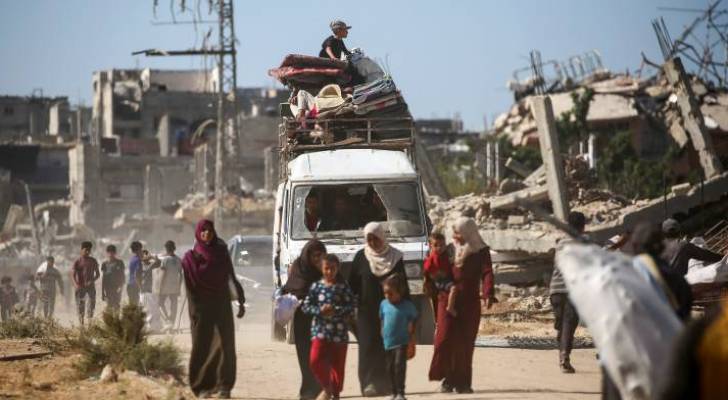UN warns ending famine in Gaza will “take time”
- UN World Food Programme urges opening all crossings to “flood the Gaza Strip with food.”
- Agency says success of ceasefire depends on allowing unrestricted humanitarian access.
The United Nations World Food Programme (WFP) warned Friday that ending famine in Gaza “will take time,” issuing an urgent appeal to open all crossings into the besieged enclave to “flood it with food” and humanitarian aid. The agency described this as a real test of the seriousness of the recently brokered ceasefire.
A fragile hope amid catastrophe
The UN appeal comes just days after the Washington-brokered ceasefire came into effect, providing what the WFP called a “narrow window” to reach hundreds of thousands of families suffering from months of siege, displacement, and hunger. The UN officially declared famine in parts of Gaza in late August, making the speed of aid delivery a matter of life and death.
Limited progress despite intensified efforts
WFP spokesperson Abeer Etefa said the agency had swiftly moved to deliver nearly 3,000 tons of food through the Kerem Shalom and Kisufim crossings via 230 trucks between Saturday and Wednesday. Another 57 trucks arrived Thursday and are ready for distribution.
Despite these efforts, Etefa noted that “quantities are still below what’s needed, but we’re getting closer,” adding that the goal is to operate 30 bakeries across the Strip - only nine are currently functional. “The smell of fresh bread in Gaza is more than just nourishment,” she said. “It’s a sign that life is returning.”
Political pressure on 'Israel'
Politically, the WFP’s call to open all crossings and “flood Gaza with supplies” represents direct diplomatic pressure on ‘Israel,’ linking the credibility of the ceasefire to the immediate and unconditional implementation of its humanitarian provisions. “The test of this agreement isn’t in pictures or press conferences,” Etefa said. “The test is whether we can feed our children.”
From ceasefire to revival
The WFP aims to reach 1.6 million people in Gaza over the next three months, focusing particularly on families returning to the north. The success of this plan, and its ability to reduce famine, depends on a political decision to keep all crossings open permanently.
Ultimately, the issue of aid has become more than a humanitarian concern; it is now the key measure of whether the ceasefire will pave the way for Gaza’s recovery or remain a fragile truce on the edge of an even deeper humanitarian disaster.




